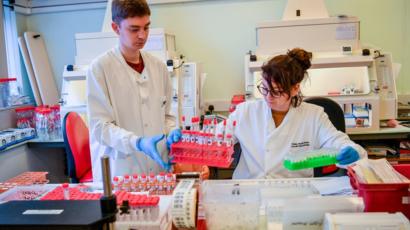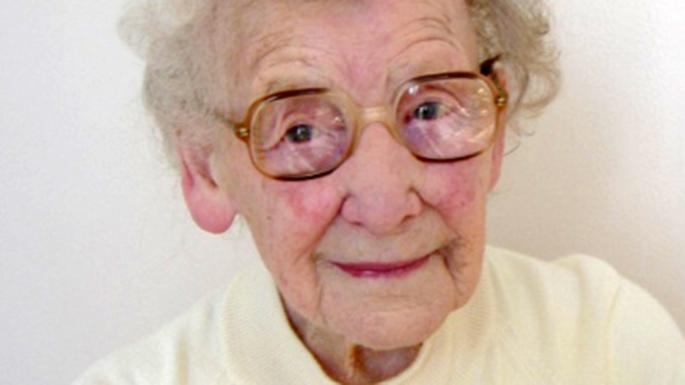The UK Government is coming under increasing pressure over Covid-19 tests as healthcare leaders warned there is “no immediate prospect” of mass NHS staff testing.
Chris Hopson, the chief executive of NHS Providers, which represents NHS trusts, said maximum testing capacity in the UK was currently “very constrained” at around 13,000 tests per day.
At present, the focus is on testing patients in hospital to see if they have coronavirus, with NHS trusts told earlier in the week they should use up to 15% of any spare testing capacity for NHS staff.
Health Secretary Matt Hancock has now scrapped that cap, telling NHS hospital labs to use all spare capacity to test their frontline workers.
It comes as Housing and Communities Secretary Robert Jenrick admitted on Wednesday that just 900 NHS staff were tested over the weekend as staff testing is rolled out.
He told Radio 4’s Today programme: “Clearly that’s a low number but one we want to build on significantly. We now have capacity today to be testing 12,750 people and we expect that within a couple of days to be 15,000.
“So we should now have the growing capacity to test NHS staff in addition to the patients in critical care.”
Mr Jenrick denied the Government and Public Health England (PHE) would only agree to centralised testing after claims from scientists and universities that their offers of help have been rejected.
He said the Government was willing to “work with any provider” who had the “right infrastructure and skills” and urged them to get in touch.
The minister also said he expects there to be 25,000 tests per day by the “middle of April”.
Asked when the national coronavirus testing centre near Milton Keynes would be fully operational, Mr Jenrick replied: “I don’t know precisely when that’s going to be coming on board.
“Everything is being brought forward as quickly as it possibly can.”
The promise of 25,000 tests per day by mid-April is in stark contrast to comments made by NHS medical director Professor Stephen Powis last Wednesday who said there would be “hundreds of thousands of tests” per day within the next few weeks.
Asked on LBC radio if the kit was in place, Prof Powis said: “We are getting the kit… you heard me correctly, we need to get to hundreds of thousands of tests a day, and we will do that over the course of the next few weeks.”
On Tuesday, Cabinet minister Michael Gove acknowledged at the daily Number 10 news conference that the Government needed to go “further, faster” on testing.
But he warned that a shortage of the chemical reagents needed for the tests was proving to be a “critical constraint” on the Government’s ability to ramp up capacity.
Currently about 8,000 tests a day are being carried out, despite ministers having previously claimed to have met a target of 10,000 a day.
Mr Hopson said on Twitter on Wednesday that if existing NHS pathology labs “had unlimited swabs and reagent, there would be enough test machine capacity to process around 100,000 tests a day”.
He added: “It’s important to understand the constraints. Recognise view of chemical industry but trust leaders tell us major shortages of swabs and chemicals/reagents needed to complete tests. There is a global shortage. But everyone is doing everything they can to maximise supply.”
He said a small sample of tests from NHS staff over the weekend showed very few were positive for coronavirus, and the majority could go back to work.
NHS staff have expressed frustration that they are being forced to self-isolate just as they are most needed, because tests are not available to show whether they are clear of the disease.
Mr Hopson said of the weekend data: “Only around 15% of those in 14 day isolation tested positive so other 85% could come back to work. If anything like right, a huge opportunity.”
Meanwhile Translink will need a £100 million injection of funds to continue providing a public transport network across Northern Ireland after the coronavirus crisis, its chief executive has said.
Chris Conway said there has been a 90% reduction in passenger numbers across bus and rail services as the public stay at home amid the Covid-19 lockdown.
He told the BBC: “We are probably at 10-15% of what we would normally see on our services on a daily basis, and obviously we’ll respond to that demand, but also encourage only essential travel.”
Earlier this year, it emerged Translink was struggling with a £29 million deficit and using reserves to continue running loss-making routes.
On Tuesday, Stormont finance minister Conor Murphy announced assistance for Translink.
Mr Conway said funding in excess of £100 million will be required to continue to have a public transport network in the future.
“We’re in the same situation post-Covid-19 like a lot of other businesses, we have very little revenue coming in for now and certainly for months to come and this will require significant support to continue to have a public transport network going forward,” he said.
“In excess of £100 million will be required to continue to have a public transport network in the future.”
Mr Conway said Translink is current running reduced bus and train services.
“Our rail network is running a Sunday service, our bus network is running a Saturday service but we continue to work with NHS care workers to make sure the services we are offering suit their needs. We are also working with trusts and the blood transfusion service to support specific staff transport requirements as well,” he said.
Mr Conway said measures have been put in place to protect staff, including enhanced cleaning regimes, minimising contact between staff and customers, encouraging the use of prepaid tickets and contactless payments, hand-washing and the use of gloves.
He added: “At the minute we don’t really have an issue with social distancing, there is plenty of space on all of our buses and trains and we will be taking further measures around social distancing in the future.
“We have to work through that at this point, but certainly it’ll be less than 50% of the current capacity, it really depends how long social distancing is required for.
“It’s hard at this point, I don’t think any of us have a crystal ball to know how long we are going to be on lockdown for.”













